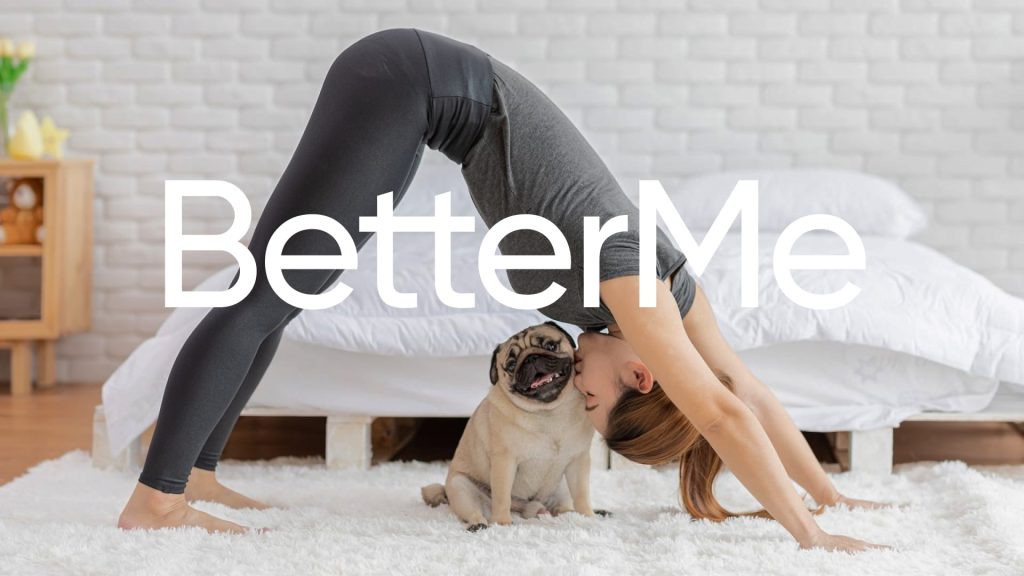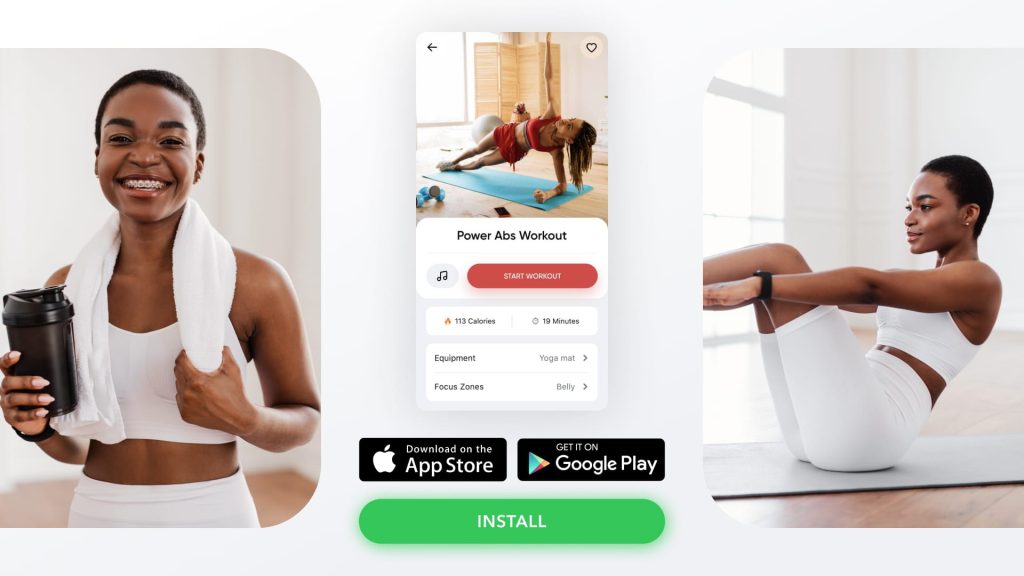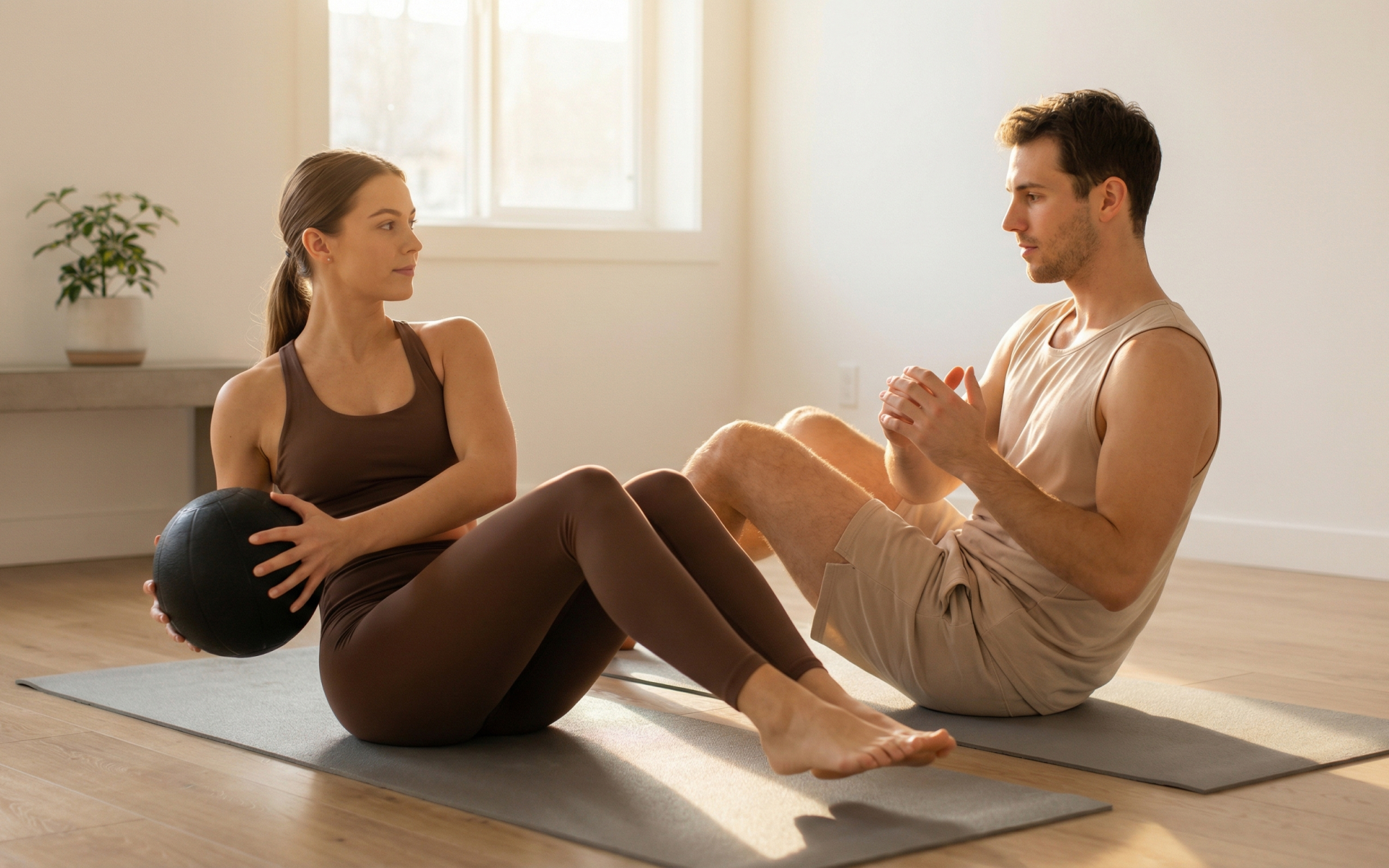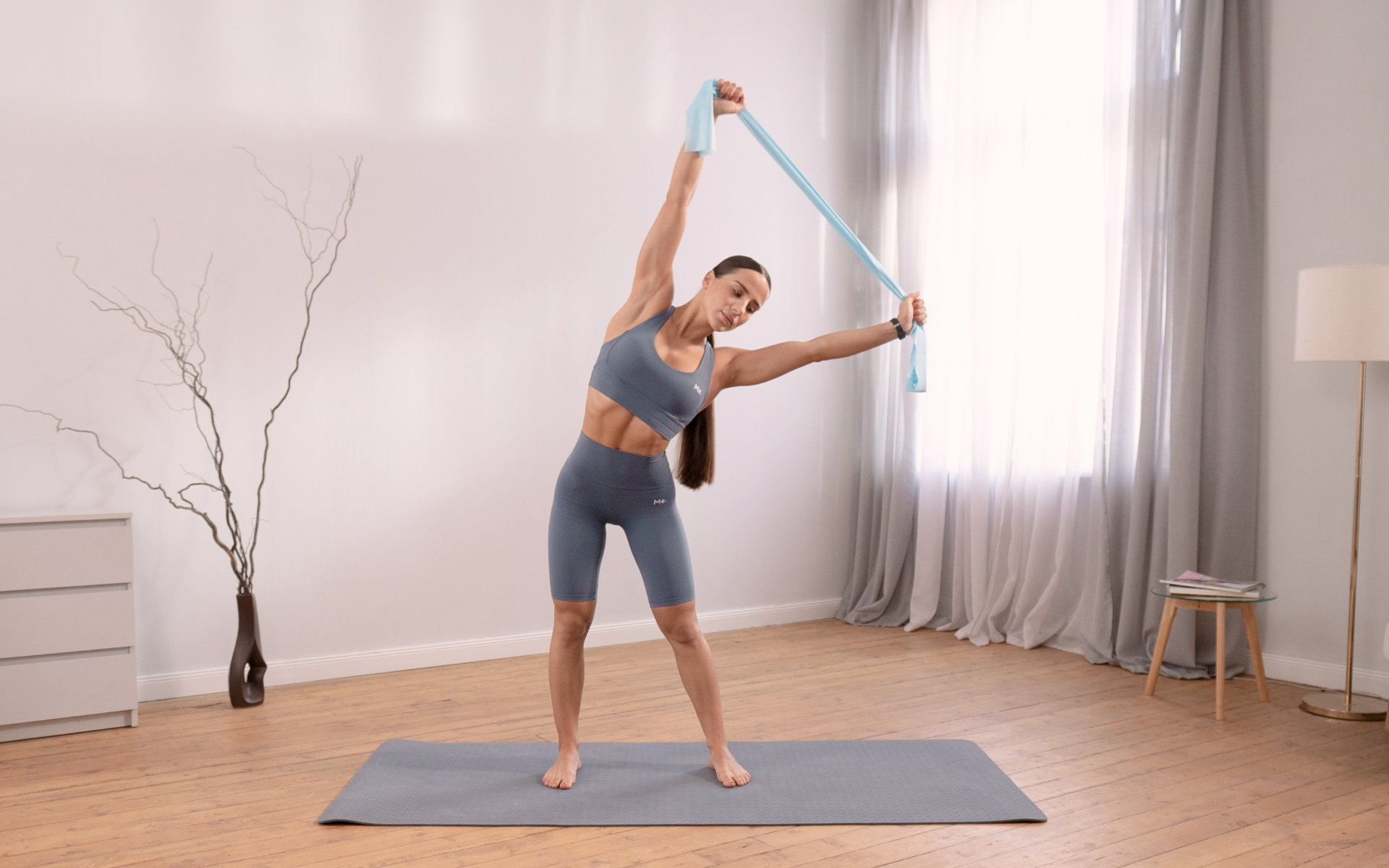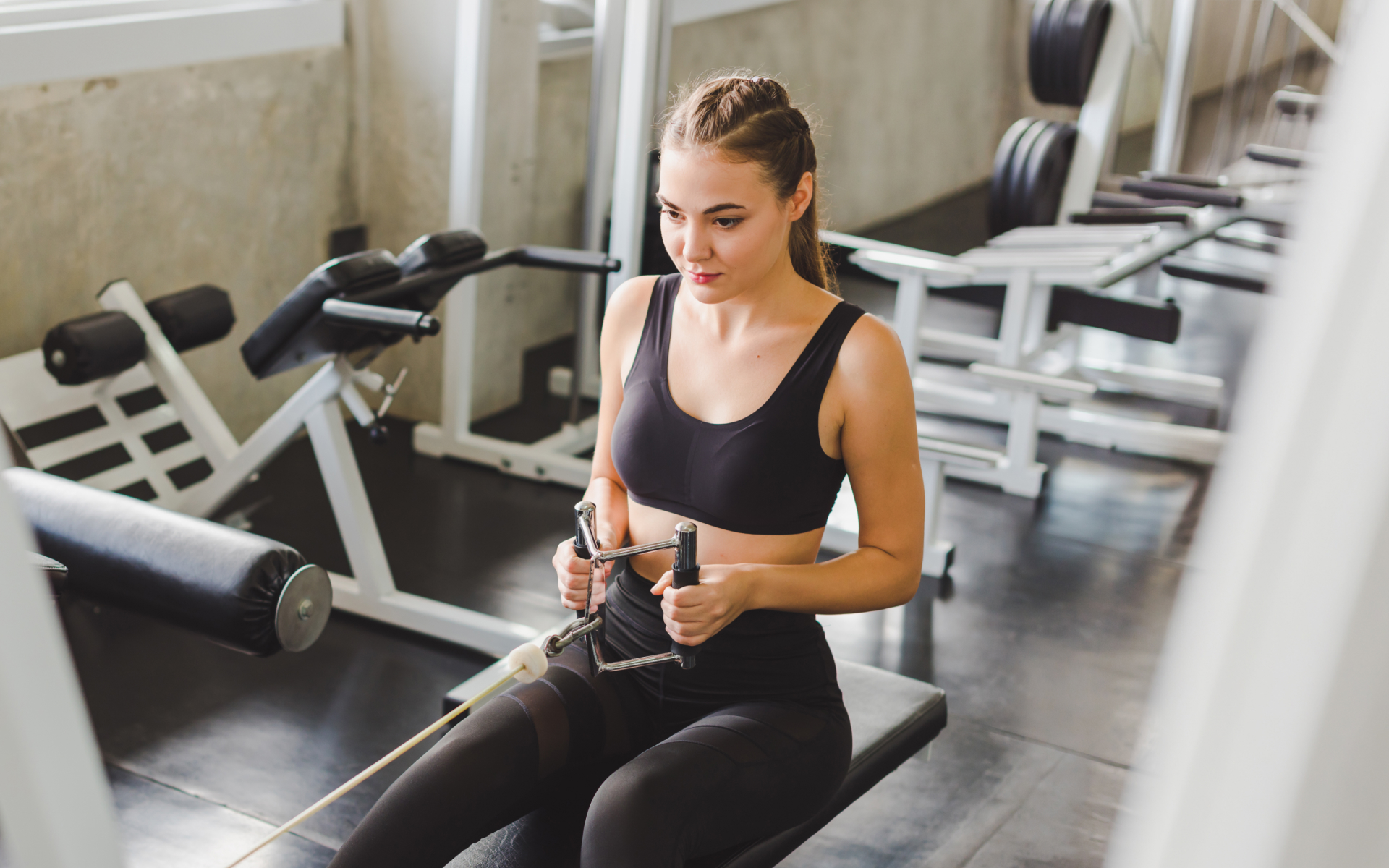Most of us are regularly breaking our backs in the gym with some killer workouts. However, another portion of us just stays at home and enjoys every meal. Luckily or not, such people have been blessed with a good physique. Their bodies are rarely affected no matter how much or what types of foods they eat. As a result, they may not see the need for exercising. Likewise, you also may also not see the need for exercising once you reach your goals. In regards to this, have you ever wondered what happens when one doesn’t exercise?
Get your personalized
meal plan!

Unfortunately, you may stop exercising after you have gained muscle or shed your desired weight. Following these changes, you start finding multiple excuses to avoid exercising. Does this mean exercising is only important before you attain your fitness goals? Again, should you only exercise during the period before you attain your goals?
Keep on reading as we discuss what happens if you don’t exercise. We will evaluate when you are required to work out, for how long, and why it matters.
What Is Exercise?
Although it seems like common knowledge, some people cannot define exercise. For most, exercising means engaging in a strenuous gym circuit or home workout. However, this is not always the case.
Exercise is known mainly as any physical activity that increases your heart rate beyond its resting levels (13). One does not necessarily have to take part in a vigorous gym or at-home workout. You can still raise your heart rate at home through other physical activities like yard work, cleaning windows and cooking outdoors.
This brings us to another aspect, which includes various types of exercises. There are a variety of exercises that you can do to meet your fitness goals. It is advisable that you first talk to a doctor before deciding on a specific type of exercise.
It all comes down to the fact that there are various exercises which better suit your fitness goals. According to Medicine Net, these specific types of exercises include (11):
-
Endurance Exercises
Most of us may know them as aerobic or cardiovascular (cardio) exercises. They are well known for increasing your heart and breathing rate. The category includes exercises such as dancing, cycling, running, swimming, jogging, brisk walking, and participation in sports activities.
Read More: Muscular Endurance Exercises: Get in Fighting Shape With These Muscle-Blasting Moves
-
Strength Training Exercises
These exercises are also known as resistance activities and they help in strengthening your muscles. In these exercises, you can use your weight, incorporate a resistance band, or lift various loads. Make sure you seek professional help from a fitness coach before you start these exercises due to their increased risk of injury.
As the name implies, these activities focus on improving your balance. These exercises will, therefore, include various balancing acts to prevent falls, especially in seniors. Yoga and tai chi are some examples of balance exercises.
These exercises focus on stretching your muscles. They are great workouts to consider, especially if you have muscle tightness that is limiting your movement. You also need to perform various stretching exercises after your workout. It helps in lowering your injury risk, boosting blood flow to your muscles, easing tension, and improving your range of motion (10).
Reasons Why Exercise Is Important
Some people believe that exercise is only important in transforming your body physique. So, after getting those flat abs, toned legs or glutes, people tend to quit their exercise program. The thing is, exercising should not stop after you lose belly fat or when you get your six-pack.
If you wish to cinch your waist, tone up your bat wings, blast away the muffin top – our fitness app was created to cater to all your needs! BetterMe won’t give excess weight a chance!
With that in mind, it should be a topic of consideration even if you have these toned arms, glutes, or legs. Research has shown that exercise has an array of health benefits, both for your body and mind (13). As such, it is recommended for everyone. Here are some solid reasons why you need to keep up with your exercise routine:
Exercise Improves Your Cardiovascular Health
Exercising regularly is pivotal as it helps with improving your heart health. This is possible due to various reasons. These include:
- Exercising lowers your cholesterol levels. When you exercise, you lower your LDL (bad) cholesterol levels. These levels are associated with an increased risk of heart diseases (5).
- It lowers your blood pressure. Doing aerobic exercises, at least for 30 or 60 minutes can lower your blood pressure. It improves your heart health as high blood pressure is ranked among the major risk factors for cardiovascular diseases.
- Exercise burns calories. Most of us only associate the burning of calories with weight loss for a better physique. However, burning extra calories does more than sculpt your figure. Burning calories helps you maintain a healthy body weight, thereby reducing your risk of obesity and heart disease (5).
- It reduces your stress levels. Exercising regularly has been proven to relieve stress. According to MedlinePlus, exercise triggers your brain to release some feel-good chemicals, which reduce your stress levels (9). Although stress is not directly linked to heart health, lowered stress levels reduce the other risk factors of cardiovascular diseases (5).
The best exercises to boost your heart health are cardio or aerobic exercises. Try to do these exercises for 30 minutes and two or three days a week (5). You can also start slow by exercising for 10 or 15 minutes. With time, you can now increase both the intensity and duration, as advised by an instructor.
It Improves Your Mood And Mental Health
Let us face it. The list of issues and circumstances that can cause you to develop a bad mood are endless. They range from family drama, relationship issues, job stress, you name it. Chances are that all these issues will affect your mood and emotional well-being.
Fortunately, exercising can help correct all these. According to MedlinePlus, when you exercise, your body releases chemicals that improve your mood. You tend to feel more relaxed, which means less stress, anxiety, or depression (2).
Read More: Meditation State: Find Out How To Induce Deep Meditation
Exercise Helps You Maintain A Healthy/Moderate Weight
Most of us are spending countless hours in the gym trying to shed excess weight. Once this is done, a fat chance most of us go back to the gym. The problem with such a move is that you are very likely going to gain back all that weight if you stop exercising.
When this happens, you end back up at square one, looking to re-accomplish the same weight loss goal. Truth be told, you need to maintain that moderate weight to reduce your risk of various diseases. This is only possible if you keep at your exercise program, despite accomplishing the desired results.
According to the Center for Disease Control and Prevention (CDC), there is no exact number to signify a healthy weight. Instead, you can only determine if you have a healthy weight by measuring your waist circumference and body mass index (BMI) (6).
The CDC acknowledges that a normal BMI ranges from 18.5 to 24.9. On the other hand, a healthy waist circumference for women is less than 35 inches. For men, it must be less than 40 inches (6).
It Helps With Diabetes Management
Diabetes is one of the most common health disorders in today’s society. It has so many detrimental health effects. Exercise can help manage this disease and reduce its effects. According to Mayo Clinic, when you exercise, your muscles tend to use sugar for energy (4).
Secondly, working out every day helps your body to utilize insulin more efficiently (4). These are some of the ways exercise helps in improving your blood sugar for better diabetes management.
Medical News Today also acknowledges that exercise can help in the management of type 2 diabetes in the following ways (12):
- By reducing cardiovascular risk factors
- Improving the control of your blood glucose
- Delaying or preventing the development of type 2 diabetes
- Helping with weight loss
- Helping with overall well-being
The site also acknowledges that working out every day can benefit people with type 1 diabetes by (12):
- Improving their insulin sensitivity
- Improving cardiovascular fitness
- Strengthening muscles
It is important to consult with your doctor before starting any exercise program for diabetes management. They will check your overall health before recommending any routine.
Exercise Has Numerous Benefits Into Old Age
Another reason to work out is increased independence and fitness in old age. According to Medical News Today, adults aged 65 and above who work out tend to reap various health benefits (7).
First and foremost, these seniors tend to have fewer mobility issues. It means that they can move around freely with little to no problems. Seniors with mobility issues can work on these by engaging in physical activity at least three or more days a week.
Secondly, working out in old age helps in promoting independence. Medical News Today states that people who exercised into old age tend to have more independence. They tend to perform various everyday activities more easily, and perhaps with little help (7).
Additionally, seniors who exercise tend to have a lower rate of all-cause mortality (7). This way, they report a healthy overall body mass and a higher level of cardiorespiratory fitness. Remember to seek professional help if you are aged 65 and above and want to exercise.
Again, make sure you stick to the recommended exercise principles. One of them states seniors exercise for 150 minutes a week through moderate-intensity aerobic activity (7).
BetterMe is your fast-track ticket to a long-lasting weight loss! Tailor your fitness journey and maximize your results with just a couple of swipes!
It Reduces Your Risk Of Various Cancers
According to the CDC, being physically active can also lower your risk of attaining frequently occurring cancers (2). So, do not stop exercising after you attain your short-term goal. Research indicates that consistently working out can reduce your risk of cancers such as endometrium, breast, kidney, bladder, and colon (distal and proximal).
Exercising also reduces your risk of lung and stomach (cardi and non-cardia adenocarcinoma) cancer (2). The CDC also acknowledges that cancer survivors can also benefit from regular exercise. According to the site, they get to improve their physical fitness and enjoy a better quality of life (2).
Exercise Improves Your Bone Health
Exercising also helps in strengthening your bones, muscles, and joints. Keeping your muscles, bones, and joints healthy is vital as it enables you to easily perform your everyday activities. If you focus on muscle-strengthening, aerobic, and bone-strengthening exercises, you get to slow down your bone density loss (2).
In most cases, the loss of bone density is associated with aging. If you stop exercising, you also tend to increase your risk of hip fractures and falls. Falls are quite common in older adults while hip fractures tend to be common among physically inactive individuals (2).
Exercise Helps With Sleep
Exercising tends to also positively impact sleep. You can expect better sleeping patterns immediately when you start working out. According to Medical News Today, improved sleep patterns are only a fraction of how physical activity impacts your sleep patterns. Regularly working out also helps with your sleep as it does the following (12):
- It reduces your daytime drowsiness
- It reduces your need for sleep medication
- Exercise increases the efficiency of your sleep
- It improves your sleep quality and promotes deep sleep
How Much Exercise Should I Get?
Looking at this list of exercise benefits, you probably are thinking of starting an exercise program. The thing is, you cannot start without getting assessed by both your doctor and fitness coach. So, first, arrange a meeting with these professionals before creating your workout plan.
Again, you cannot start exercising without information on the exercise basics. They range from the various types of exercises to the exercise duration. As mentioned earlier, exercises could be strength training, balance, endurance, or flexibility activities.
When it comes to the length of time for exercise, this may tend to vary depending on your fitness level and age. You may find that seniors and people at the beginner level tend to work out for shorter durations. This is in comparison to younger fitter individuals and those in the advanced fitness level.
Similarly, your workout duration may also vary depending on the intensity of your exercise program. According to Mayo Clinic, you should exercise for 150 minutes a week if you are engaging in a moderate aerobic activity (8).
If it is a vigorous aerobic activity, aim for 75 minutes a week. As mentioned earlier, if an exercise is intense, then you will spend less time performing it compared to if it is moderate.
Can I Start Exercising Today?
Do you love what happens when you exercise? Great! So now you are thinking of starting an exercise routine today or as soon as possible? Congratulations, this willpower will help you stay committed to your routine.
However, this willpower is not a ticket to starting an exercise program immediately. As mentioned earlier, you ought to also sit down with both your healthcare provider and instructor. Similarly, you also need to go through the various types of exercise programs to determine one that suits your individual needs.
The worst mistake you can make is trying a friend’s or sibling’s workout plan without first seeking any guidance. Remember that we all have different needs and each plan is specifically tailored to suit a person’s needs.
So, take some time and make these visits and decisions. Also, do your research to determine how your exercise program will fit into your schedule. What is important is not when you start exercising but instead that you start exercising safely and with an effective workout plan.
The Highs And Lows Of Exercising
At first, you will feel like exercising even past the given timeline. It may also be the case when you start seeing your short-term results. However, the same cannot be said when your results take longer or when muscle soreness, injuries, and fatigue start kicking in.
In such instances, you will probably feel like giving up or you may be tempted to do only half the routine. You need to know from the get go it will be a rollercoaster. You will have your good and bad days. Here are some tips to help see you through your routines and enjoy the array of health benefits of exercising:
- Eat healthy foods. Diet and exercise go hand in hand. Focus on the consumption of whole grains, lean proteins, fruits, vegetables, and high-fiber foods.
- Warm-up. Always warm-up before you start exercising. It revs up your cardiovascular system by increasing blood flow to your muscles and raising your body temperature (1).
- Get enough rest. Too little sleep may trigger your stress hormones, thereby counteracting your exercise results (6). You can outsmart this issue by making sure you are well-rested.
- Keep moving. Whether you attain your goals or not or whether you blunder once or twice, the idea is to keep moving. Focus on the positives instead of beating yourself up for one bad day.
The Bottom-Line
What happens if you don’t exercise? Research shows that you tend to gain excess weight and an increased risk of various diseases. They include diabetes, heart diseases, and various cancers. Not exercising also increases various aging issues. They include increased risk of falls, osteoporosis, and increased dependence. Make sure you seek professional help before you start exercising.
DISCLAIMER:
This article is intended for general informational purposes only and does not address individual circumstances. It is not a substitute for professional advice or help and should not be relied on to make decisions of any kind. Any action you take upon the information presented in this article is strictly at your own risk and responsibility!
SOURCES:
- Aerobic exercise: How to warm up and cool down (2019, mayoclinic.org)
- Benefits of Exercise (2021, medlineplus.gov)
- Benefits of Physical Activity (2021, cdc.gov)
- Diabetes management: How lifestyle, daily routine affect blood sugar (2020, mayoclinic.org)
- Give your heart a workout (2021, medlineplus.gov)
- Healthy Weight (2019, cdc.gov)
- How does exercise support health later in life? (2019, medicalnewstoday.com)
- How much should the average adult exercise every day? (2019, mayoclinic.org)
- Learn to manage stress (2021, medlineplus.gov)
- Stretch Your Limits: Feel-Good Stretching Routine (2014, webmd.com)
- What Are the Four Most Important Types of Exercises (2020, medicinenet.com)
- What are the mental and physical health benefits of exercise? (2021, medicalnewstoday.com)
- What to know about exercise and how to start (2019, medicalnewstoday.com)






